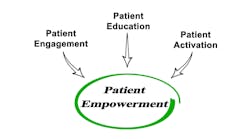Seven PA Health Systems Partnering on Healthy Food Access Pilot
Seven health systems in the Philadelphia are are partnering with community organizations, public health departments and insurers on a Healthy Food Access Pilot aimed at addressing food insecurity in the region.
The Healthy Food Access Pilot is part of a broader population health initiative in the southeast Pennsylvania region.
More than one in 10 Pennsylvanians are food insecure, and 21 percent of Philadelphia residents are food insecure, according to statistics provided by the Hospital and Healthsystem Association of Pennsylvania. Food insecurity is defined as the lack of consistent access to sufficient nutritious food necessary to lead a healthy life. Food insecurity is associated with poor physical health outcomes, high prevalence of chronic illnesses, adverse effects on child development, poor mental health outcomes, high health care utilization and spending and children more likely to be hospitalized.
Pennsylvania’s hospitals are working to break this cycle by prescribing healthy food, hosting farmer’s markets and on-site food pantries, growing their own produce and sharing it with patients, holding healthy cooking classes, and piloting innovative programs to help the communities they serve. As part of the Healthy Food Access Pilot, trained staff at participating hospitals are screening patients for food insecurity at primary care offices, inpatient units, a post-discharge call center and emergency departments. Once food-insecure patients are identified, they are connected with community partners that can help with health food resources and programs, such as SNAP enrollment.
According to program officials, the program is producing results. To date, 6,777 patients have been screened, with 24 percent screening positive and connected to community partners for help with food insecurity, including referrals for SNAP benefits.
The participating health systems are tracking measures such as the number of patients screened and positive screens, the number of referrals made to community resources, the number of patients referred for SNAP benefits and the applications submitted and the number of patients whose needs were met.
The health systems involved in the initiative are Children’s Hospital of Philadelphia, Einstein Healthcare Network, Holy Redeemer Health System, Jefferson Health (including Abington Jefferson Health and Jefferson Northeast), Mercy Health System, Temple University Health System, and the University of Pennsylvania Health System.
The Healthy Food Access Pilot is part of a broader initiative called Collaborative Opportunities to Advance Community Health (COACH), which brings together diverse regional partners to address unmet health needs of vulnerable communities in southeastern Pennsylvania. The collaborative sponsored by the Hospital and Healthsystem Association of Pennsylvania (HAP) and is facilitated by the Healthcare Improvement Foundation. COACH consists of seven health systems, representing 18 hospitals in the region, and 16 partners, such as public health, community and insurer partners.
The collaborative recognized that many challenging health problems arise from social issues that cannot be effectively addressed by one stakeholder alone. Through a collective impact approach, COACH gives participants an opportunity to make real progress together in addressing the underlying social needs that give rise to poor health, according to program officials.
“COACH’s ultimate goal is to achieve measurable improvements in population health of vulnerable local communities, thereby reducing the incidence of preventable medical interventions—such as hospital readmissions—caused in part by patients’ social circumstances,” a program description states.

